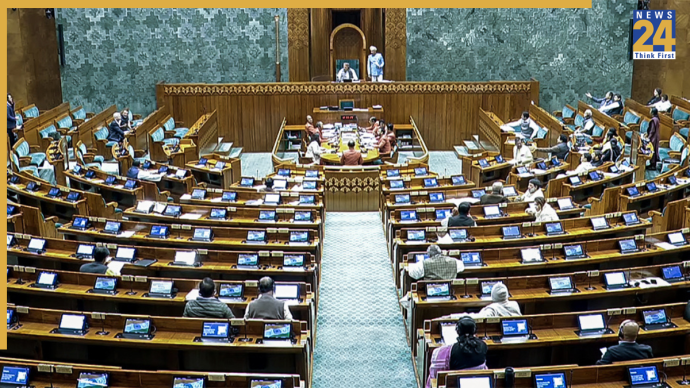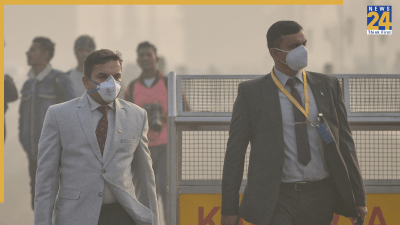Researchers discovered that immune cells play an active and intimate role in guiding the growth of human lung tissue throughout development, revolutionising our understanding of early lung development and the role of immune cells beyond immunity.
The findings could help researchers better understand and treat respiratory disorders like chronic obstructive pulmonary disease (COPD). Respiratory diseases account for over 20% of all deaths in children under the age of five worldwide.
The findings were published in Science Immunology, will help shed light on the mechanisms behind childhood lung diseases.
The work reveals a surprising coordination between the immune and respiratory systems, much earlier in development than previously thought. This discovery raises questions about the potential role of immune cells in other developing organs across the body.
Researchers from the Wellcome Sanger Institute, University College London (UCL) and their collaborators at EMBL’s European Bioinformatics Institute used advanced single-cell technologies to map the development of early human lung immune cells over time.
Also Read: Mood Booster! The Hidden Benefits Of Bitter Dark Chocolate
This study has created a first-of-its-kind immune cell atlas of the developing lung2. It is part of the international Human Cell Atlas3 initiative, which is mapping every cell type in the human body, to transform our understanding of health, infection and disease.
Immune cells make up a substantial portion of the airways and mature lungs, which have critical gas exchange and barrier functions, providing protection against infection of the respiratory tract. However, the roles of immune cells in the developing organ have remained unexplored compared to structural or lining cell types. Recent discoveries confirm the presence of immune cells in human lungs as early as five weeks into development4.
To explore whether the immune system might influence how lungs grow, the team studied immune cells in early human lungs from 5 to 22 weeks of development. They used various techniques, including single-cell sequencing and experiments with lung cell cultures, to see if immune cells could affect lung cell development.
They identified key regulators of lung development, including signalling molecule IL-1b and IL-13 that facilitate the coordination of lung stem cells differentiating into specialised mature cell types5.
The researchers detected an infiltration of innate, followed by adaptive immune cells. Innate cells included innate lymphoid cells (ILCs), natural killer (NK) cells, myeloid cells and progenitor cells. With respect to adaptive immune cells, as well as T cells, both developing and mature B lineage cells were detected, indicating that the lung environment supports B cell development.
The findings fundamentally change the understanding of the immune and epithelial interactions that are crucial for foetal lung maturation. They also suggest that early immune disturbances could manifest as paediatric lung disease.
These new insights into mechanisms in early lung formation will also contribute to the development of new therapeutic approaches for regenerating damaged lung tissue and restoring lung function.
Also Read: Know What Does Your Finger’s Length Reflet About Your Personality
Dr Peng He and Dr Jo Barnes, co-first authors of the study at the Wellcome Sanger Institute and EMBL’s European Bioinformatics Institute, and UCL Division of Medicine respectively, said: “By adopting a focused strategy in mapping the immune system, we reveal a symbiotic relationship between immune cells and developing lungs. These detailed insights open the door to potential regenerative therapies in not only the lung, but in other vital human organs.”
Dr Marko Nikolic, senior author of the study at UCL Division of Medicine and honorary consultant in respiratory medicine, said: “We now know immune-epithelial crosstalk is a feature of early lung development. This vital baseline of healthy lung development will help us understand what happens when lung developmental processes get disrupted, for example in preterm births, which can lead to respiratory deficiencies.”
Dr Kerstin Meyer, senior author of the study at the Wellcome Sanger Institute, said: “The active participation of immune cells expands the possibilities for understanding and addressing impaired lung formation. What is super exciting about this mechanism is that it may well apply in other organ systems too.”
Dr Sarah Teichmann, senior author of the study at the Wellcome Sanger Institute and Co-founder of the Human Cell Atlas, said: “If we are to fully understand the root causes of disease, we require a complete view of cells at all stages in the human body. This important contribution towards a comprehensive Human Cell Atlas will be a valuable reference for studying lung diseases.”
Also Read: Per Day Alcohol Drinking Limit Revealed; Know How Much It Is Safe For You
Source: ANI













